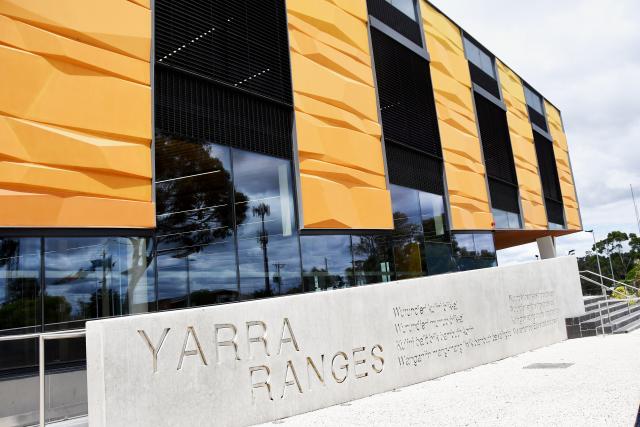
By Callum Ludwig
Yarra Ranges councillors have discussed some key proposals they hope to put forward to the Municipal Association of Victoria (MAV) as motions for the next MAV State Council Meeting in May at the Tuesday 12 March council meeting.
Notably, councillors proposed as part of an alternative motion to strike out the second motion to MAV to advocate to strengthen Victorian laws on ‘vexatious requests’ and ‘serial complainants to Council’.
Before the item was even discussed by Councillors, a question from Belinda Bernadini asked for a definition of ‘vexatious’, called on Council to clarify who would determine what is viewed as a vexatious request and if passed on to MAV, what remedies would be available for residents who felt their issues hadn’t been dealt with satisfactorily and whether the changes could prohibit freedom of information.
Yarra Ranges Council’s Director of Corporate Services Andrew Hilson said in a response to the question and said Council’s definition of vexatious aligns with the Victorian Ombudsman’s definition of unreasonable behaviour.
“Specifically, this relates to behaviours such as unreasonable persistence, demands and arguments, along with an unreasonable lack of cooperation and aggressive behaviour. The Victorian Ombudsman and Council’s current complaint handling policy both include several examples of each of these behaviours and can be found on each organisation’s website,” he said.
“Ultimately, the definition of vexatious requests would be defined by the state government who would draft and pass that legislation,”
“Regardless of whether the MAV motion is passed or not, residents who feel that their complaints have been unfairly rejected as vexatious or unreasonable are able to escalate their complaint to a third party agency, such as the Victorian Ombudsman, local government inspectorate or the Victorian Equal Opportunity and Human Rights Commission.”
When it came time to discuss the item, there was a speaker in objection Kathy Ricciuti who was particularly opposed to the second point in the proposed MAV motions.
Ms Ricciuti said herself and many others saw it as an attempt to shut down and shut out the community of the Yarra Ranges.
“Can you tell me what is your source of authority to block people that you are meant to be representing, what solution is offered to a resident who needs to follow up when no satisfactory resolution has been received, who determines if a complaint is vexatious, who determines if a complaint is trivial, trivial to whom,” she said.
“May I suggest that while council complaint processes are a critical mechanism for ensuring that councils and councillors are accountable to the community, these processes are increasingly being used to isolate council from the real issues on the ground,”
“They restrict accountability as well as restrict efficient and effective solutions, I feel that people across Victoria are simply asking more questions and pointing out the inefficiencies of their councils and councillors due to increased awareness.”
The Cambridge Dictionary defines vexatious as ‘difficult to deal with and causing a lot of anger, worry, or argument’, while in relation to claims, complaints or lawsuits it can often also mean that is has been brought to bring annoyance or financial cost to a defendant rather than on its merits of winning.
Ryrie Ward Councillor Fiona McAllister then proposed an alternative motion she had prepared earlier, calling to strike out the second item and add an additional motion in its place calling for the release of funding from the landfill levy.
Cr McAllister said that a number of councillors were not in support of advocacy to the Victorian Government through the MAV to strengthen laws in relation to vexatious requests.
“For me, the reason for scratching that one is, that I’m not sure what the problem is that we’re trying to fix,” she said.
“I do agree that genuine concerns and issues that haven’t been resolved and feedback to Council are an important part of how we operate in our democracy, and when it’s respectful feedback and it’s a good conversation, it’s really the basis for local government and hearing from the community.”
O’Shannassy Ward Councillor Jim Child seconded the motion and said he believes they have mechanisms within the Council to do with that particular item.
“I did sit in that Mayor’s seat for the last two years, and there were some challenges,” he said.
“There were some challenges with people that approached our Council, but I sincerely believe that we have mechanisms in place to deal with that.”
Billanook Ward Councillor Tim Heenan also supported the removal of the second item.
Instead, Yarra Ranges councillors called for transparency on the uses of the sustainability fund, funded by the landfill levy in which Yarra Ranges Council paid $3.8 million in the last year alone.
Cr McAllister said the fund is reported to improve issues relating to waste and recycling, reduce the use of landfill and all of the things that, as a council, they are tasked to do.
“It’s a bit of a secret fund, a lot of money goes in it. Money does come out, it’s not a very transparent process, and in doing some research for tonight’s meeting, it’s really hard to find out how much money is in that landfill levy, that sustainability fund,” she said.
“We should know how much money is sitting in that fund, and it should only be allowed to be spent on specific agreed issues and opportunities locally and regionally that will improve waste, recycling, all of those other issues that local government tackles on a day-to-day basis and puts an additional charge out to our ratepayers for.”
Cr McAllister also referred to a report from the Australian Council of Recycling in 2017 called the Victorian Landfill Levy Report that estimated $500 million was forecast to be sat idle in the sustainability fund.






